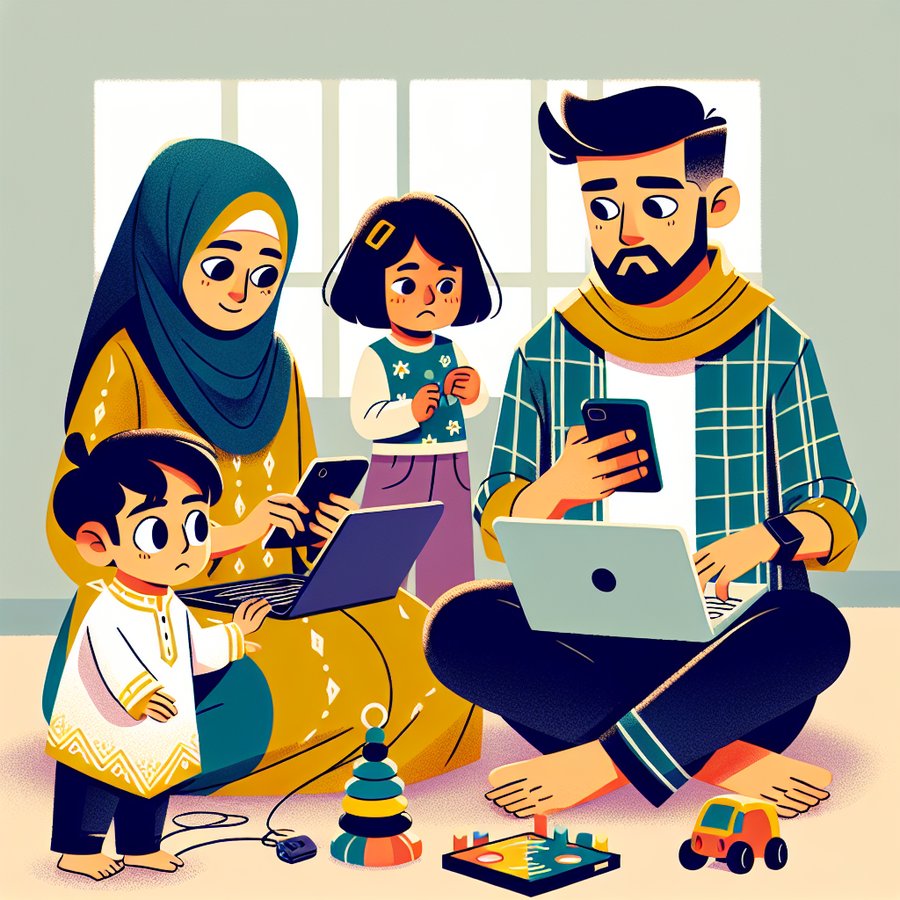The impact of parental screen time on children has become a notable concern in today’s digital era. With screens almost omnipresent in our daily lives, understanding the implications of our digital habits on our children’s development is crucial. This article delves into the effects of parental screen time on children, backed by research and expert insights, and offers practical advice for parents seeking balance.
The impact of parental screen time on children
Recent studies highlight the significant influence parental screen time has on children’s emotional and social development. As parents, our engagement with digital devices often serves as a model for our children’s behavior. The American Academy of Pediatrics suggests that excessive parental screen time can lead to reduced parent-child interactions, which are essential for children’s language development and emotional bonding (AAP).
In essence, when parents are absorbed in their screens, the opportunities for meaningful conversations and interactions diminish, potentially leading to feelings of neglect and emotional distance in children. Moreover, parental screen time can indirectly encourage similar screen habits in children, contributing to their sedentary lifestyle and affecting their social skills development.
Strategies for balancing screen time in the family
Acknowledging the impact of parental screen time on children is the first step towards fostering healthier digital habits within the family. Setting boundaries for screen use, such as designated ‘screen-free’ times, can encourage more family interactions and reduce reliance on digital devices for entertainment. Engaging in alternative activities, like outdoor play or board games, can also provide meaningful ways to connect with your children, offering both cognitive and physical benefits.
Additionally, parents can lead by example by consciously reducing their own screen time and prioritizing face-to-face interactions over digital communication when possible. Creating a family media plan, as recommended by HealthyChildren.org, can help in setting shared goals and expectations regarding screen use, ensuring that everyone in the family is on the same page.
Exploring the psychological effects of screen time on children
Beyond the immediate social and emotional ramifications, the impact of parental screen time on children also extends to psychological aspects. Children who observe high levels of screen engagement in their parents may experience increased anxiety and stress, particularly if screen time disrupts daily routines or replaces quality family time. This can affect their sense of security and well-being, influencing their overall mental health.
Furthermore, the content consumed by parents in front of their children can also have profound effects. Exposure to inappropriate or distressing content can lead to confusion and fear, highlighting the importance of mindful content consumption when children are present. By being aware of the content and context of their screen use, parents can mitigate potential adverse psychological impacts on their children.
In conclusion, the impact of parental screen time on children is multifaceted, encompassing emotional, social, and psychological dimensions. By adopting a balanced approach to screen use, parents can model healthy digital habits for their children, ensuring their development is supported in a digitally saturated world. Implementing family media plans and engaging in screen-free activities are tangible steps towards nurturing a healthy, connected family environment.
For more guidance on managing screen time and fostering a positive family dynamic, visit Parenting in a Digital Age: Guidelines for Screen Time, The Importance of Self-Care for New Parents, and Maintaining a Healthy Relationship After Baby Arrives.













